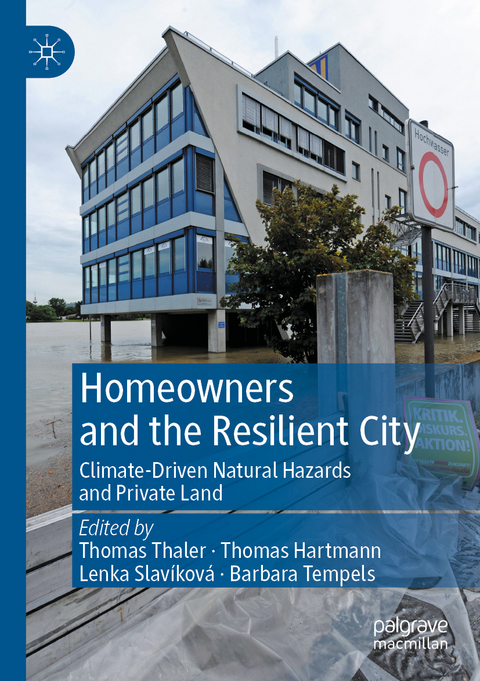
Homeowners and the Resilient City
Springer International Publishing (Verlag)
978-3-031-17765-1 (ISBN)
Thomas Thaler is a Research Fellow at the Institute of Mountain Risk Engineering, University of Natural Resources and Life Sciences, Vienna, Austria.
Thomas Hartmann is the chair of land policy and land management at the School of Spatial Planning, TU Dortmund University, Dortmund, Germany.
Lenka Slavíková is Associate Professor in public economics at J.E.P.University in Ústí nad Labem, Czech Republic.
Barbara Tempels is Assistant Professor at the Department of Environmental Sciences at Wageningen University, Wageningen, the Netherlands.
Introduction.- Resilient cities and homeowners action: governing for flood resilience through homeowner contributions.- Propety, property rights and natural hazards and beyond.- Individual behaviour in disaster risk reduction.- Resilient flood recovery - financial schemes for the recovery-mitigation nexus.- Resident's role in Sponge City construction and urban flood disaster relief of China.- Factors influencing flood related coping appraisal among homeowners and residents in Kampala, Uganda.- Addressing the homeowners' barriers to Property-Level Flood Risk Adaption: A case study of tailored expert advice in Belgium.- Strategic risk communication to increase the climate resilience of households - Conceptual insights and a strategy example from Germany.- Government, homeowners, and wildfire: what can we learn from California's resilience planning experience?.- Supporting stakeholder-based adaptation to climate change: experiences in theCity of Melbourne.- Conclusion.
| Erscheinungsdatum | 04.01.2024 |
|---|---|
| Zusatzinfo | XXII, 301 p. 13 illus., 10 illus. in color. |
| Verlagsort | Cham |
| Sprache | englisch |
| Maße | 148 x 210 mm |
| Gewicht | 420 g |
| Themenwelt | Naturwissenschaften ► Geowissenschaften ► Geografie / Kartografie |
| Schlagworte | Climate resilience • Climate Vulnerability • disaster risk reduction • efficient flood relief • Flood hazard • flood resilience • homeowners • Natural Hazards • property rights • risk adapatation • risk governance • Rockefeller 100 Resilient City initiative • sustainable land use • Urban Resilience |
| ISBN-10 | 3-031-17765-7 / 3031177657 |
| ISBN-13 | 978-3-031-17765-1 / 9783031177651 |
| Zustand | Neuware |
| Informationen gemäß Produktsicherheitsverordnung (GPSR) | |
| Haben Sie eine Frage zum Produkt? |
aus dem Bereich


